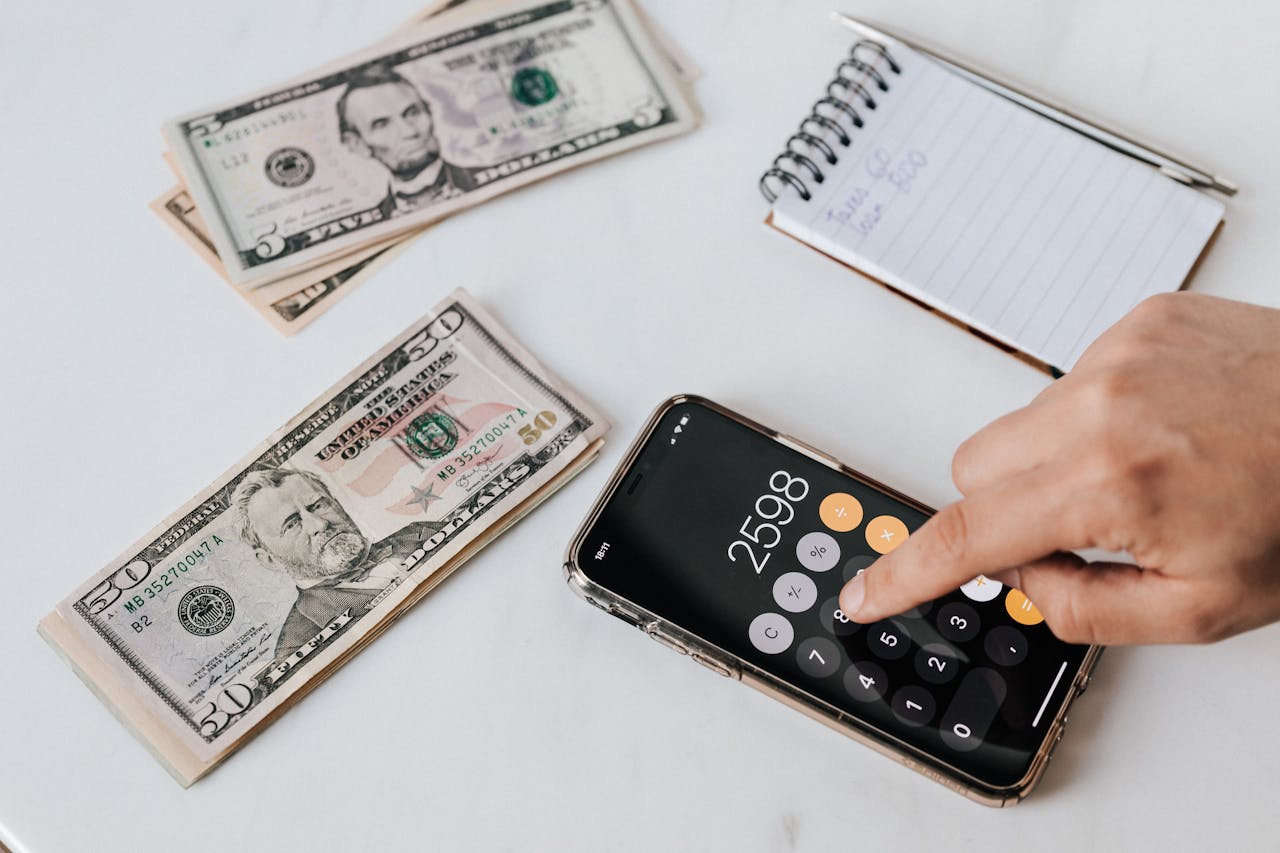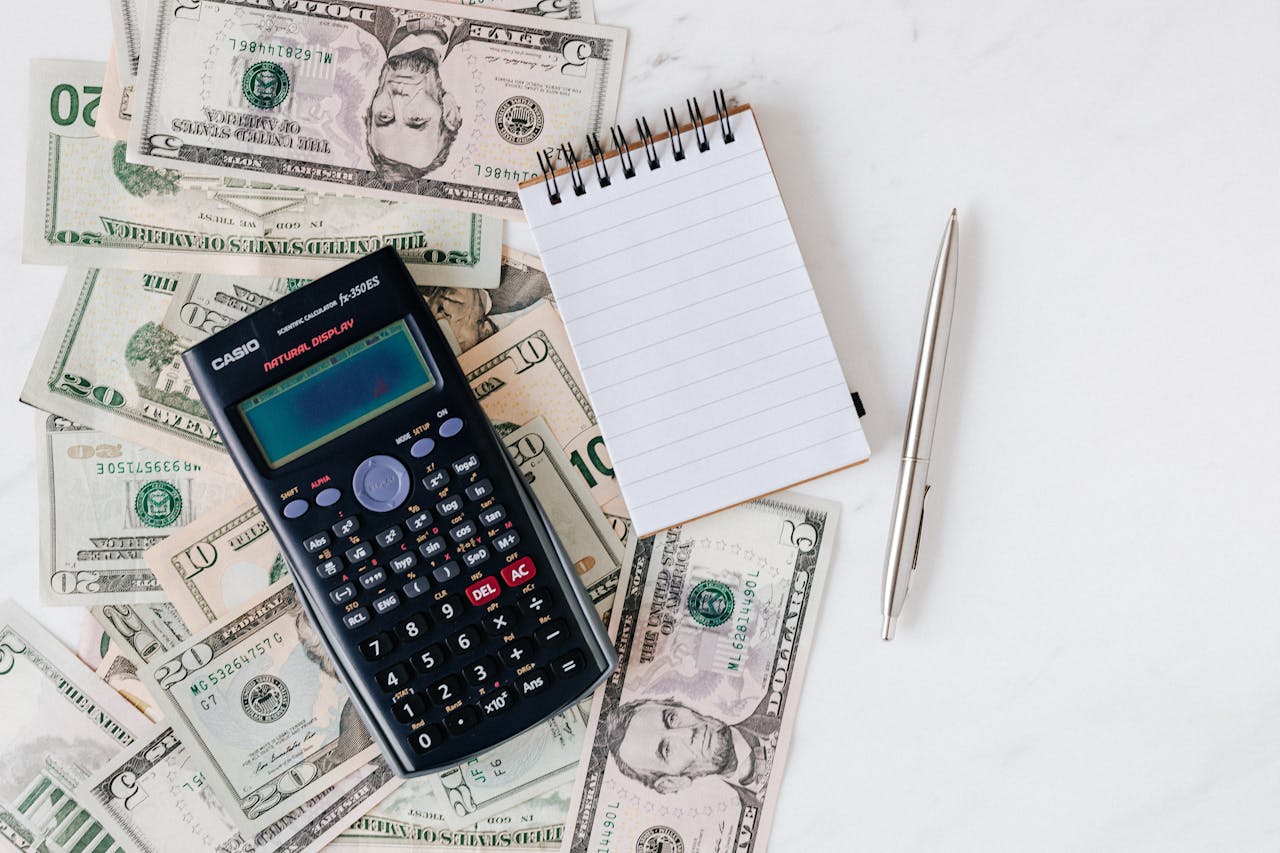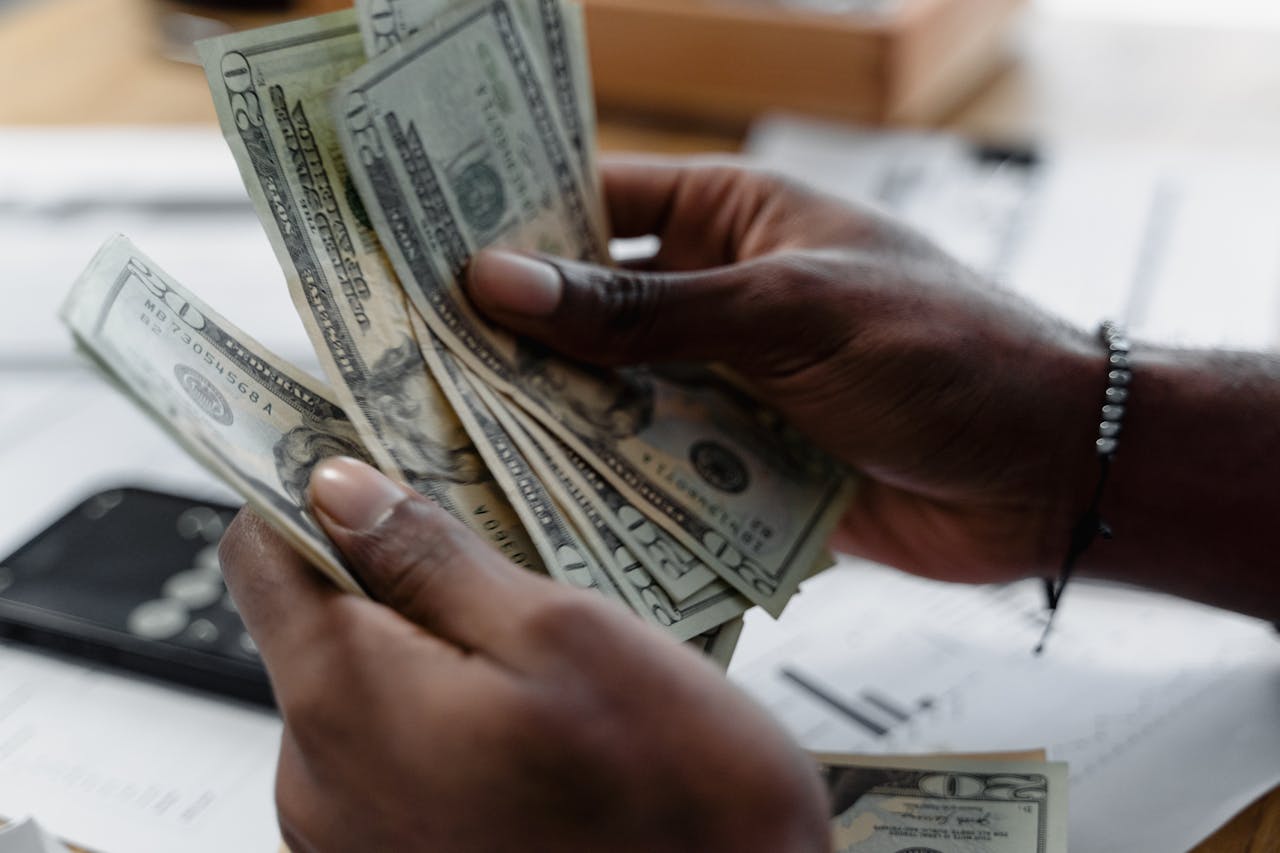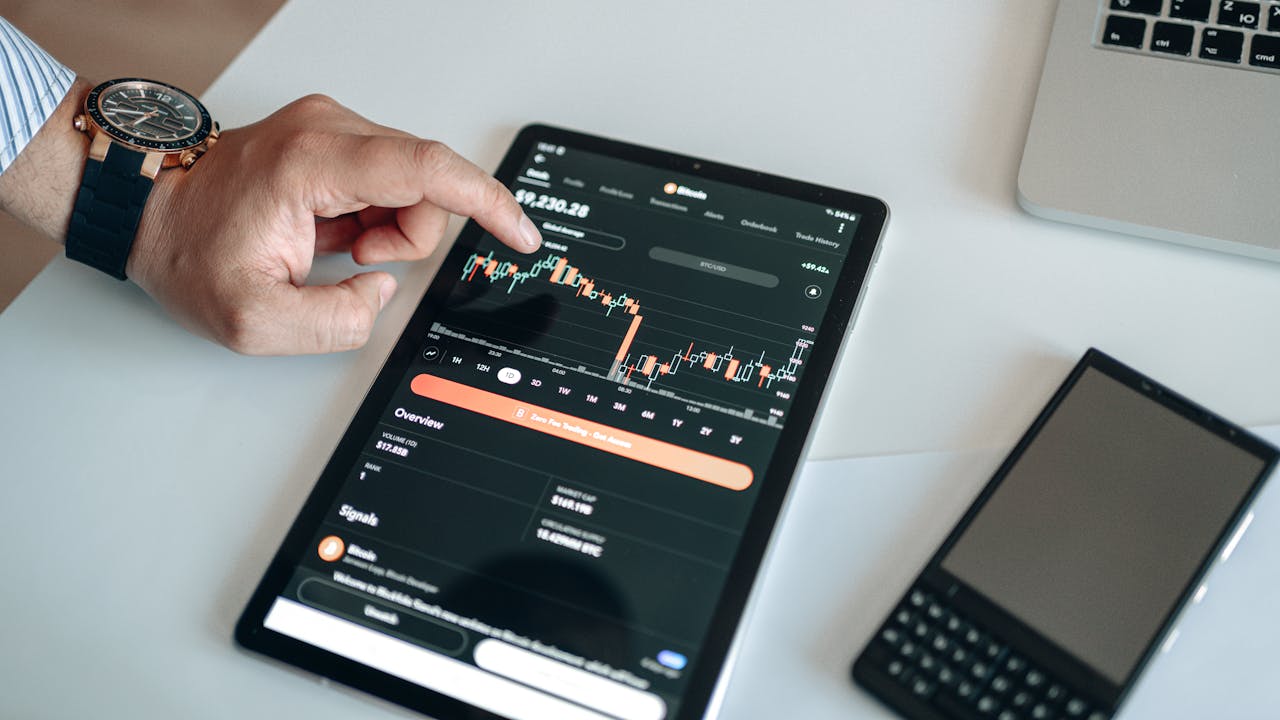What To Do With A Million-Dollar Fortune
Just imagine: You're sitting at home one day when you get a phone call or email from a lawyer handling an estate dispersal. You're told (after confirming your identity) that you stand to inherit a substantial amount of money from an aunt you've never met. After the process of dispersing the estate is complete, you receive a check in the mail. You open it. You look at it. You check it again. That can't be right. $2.3 million? You're rich beyond your wildest dreams—here's how not to squander this incredible gift.

Your First Step: Breathe Deep
If you didn't know the person who left you the money, there's a good chance you have very little emotional connection. You should still take a deep breath and pause for a moment. You've just inherited a life-changing amount of money. Once you've taken the time to pause and realize this, you can then begin figuring out how to use it to your advantage.
Avoid Telling Everyone About Your New Fortune
It can be tempting to share your good fortune with everyone, but be cautious about who you tell. Everyone will have their opinions on how to handle your money, but this is your money to manage. Your first port of call should be to consult with a financial advisor.
 LinkedIn Sales Navigator, Pexels
LinkedIn Sales Navigator, Pexels
Meet With A Financial Advisor
After the initial shock has left you, it's time to meet with a financial advisor. You'll want to find one that's accredited in your area and has good reviews from clients, but also has the heart of a teacher. That is, they'll be the ones to guide you through this process and help you understand how to use this money to the best of your ability.
Move Slowly And Intentionally
One of the best things you can do when you inherit a large sum of money is to move slowly. You have $2.3 million. You should be in absolutely no rush to do anything. Don't quit your job right away. And please don't spend a penny until you're certain whether it's moving you closer to or further away from your financial goals.
Lay Out A Financial Plan
One of the best things you can do when you meet with a financial advisor is to lay out a financial plan, a detailed, comprehensive plan of what to do with your newfound riches. This plan should include how much you want to contribute to a retirement account, how much you want to allocate for personal expenses and family needs, how much you want to set aside for an emergency fund, and other relevant details.
Why Do You Need An Emergency Fund If You Have Millions?
That's a fair question, but setting aside some money for emergencies is the best financial practice, whether you have $1,000 or $1,000,000. If you set aside an emergency fund, then whatever happens with the rest of your money, you know you'll be okay. Most experts suggest setting aside three to six months, but given that you've been blessed with such an inheritance, you could probably set aside a year's worth of expenses.
 Photo By: Kaboompics.com, Pexels
Photo By: Kaboompics.com, Pexels
Figure Out Tax Implications
Before you start making large purchases, you'll need to figure out if there are any taxes associated with the inheritance. Typically, if an inheritance is below $13 million, it is exempt from federal taxes. State tax laws vary, so be sure to consult with your accountant for accurate guidance. Given that we're talking about $2.3 million, you won't have to pay federal taxes.
 Photo By: Kaboompics.com, Pexels
Photo By: Kaboompics.com, Pexels
Pay Off Your Debts
Such a large lump sum should be enough to wipe out your debt completely. Start with the largest debt first and pay off every other debt. Once you're debt-free (this could include your mortgage, if you already own a house), then you can develop a plan for the remaining funds.
The Debt Snowball Or Avalanche Method?
There are generally two methods for paying off debt: first is the debt snowball, which prioritizes paying off debt from largest to smallest, using the additional funds gathered from paying off the largest debt to put toward the next-largest debt, and the personal motivation that comes along with it. This is our preferred method.
The Debt Avalanche Method
The avalanche method of debt repayment involves making minimum payments on all debts and using any extra funds to pay off the debt with the highest interest rate first. While this is fine in many instances, it doesn't quite give you the same boost as the snowball method.
 Photo By: Kaboompics.com, Pexels
Photo By: Kaboompics.com, Pexels
Set Aside Money For Your Children, If You Have Them
Whether you put this money into a locked Certificate of Deposit account for many years, or into a 529 plan for their education, or even a simple investment account, your kids will be better off for it. If you don't have children, consider investing your money into a healthcare insurance plan or fund for you and your spouse as you age.
 Photo By: Kaboompics.com, Pexels
Photo By: Kaboompics.com, Pexels
How To Manage The Rest Of The Money
Once you've established a fully funded emergency fund, paid off your debts, and secured your kids' education or future healthcare needs, it's time to consider how you want to manage the rest of your money. Depending on your allocations to this point, you may still be looking at a range of $1.5 to $2 million. That's a lot of money.
Buy A Home
If you're renting at the moment or are still living with your parents because the rental market is challenging, congratulations —you've just been given the keys to the kingdom of homeownership. A key point here is to be careful when you have this amount of money. Here are some factors to consider when determining how much to spend on a home, given this level of wealth.
How Much House Do You Need?
Having this huge lump sum available to you opens up a world of home ownership options. But you still need to be careful not to blow the entirety of the rest of your inheritance on a home. Sure, it's an appreciating asset, but there is such a thing as having too much house. Decide how large a property you want to buy before making an offer on the biggest one you can afford.
Could You Buy Two For The Price Of One?
Instead of buying one large home (assuming you have a small family or no children and don't need a big home), could you buy a second, modestly sized home and use it as an investment property, renting it out to those in need? If you don't need a large home and could instead live in a smaller one, you could buy a second property and generate a guaranteed monthly income from it.
Buy Another Property
If you already own a home and have paid off your mortgage with this lump sum, you could also use it to buy an investment property (as mentioned above) or a small cottage by the sea in your favorite family vacation spot.
Take The Trip Of A Lifetime
One of the best investments you could make with your newfound riches is to take the trip of a lifetime. Perhaps there's a place you or your family have always wanted to visit. Spend the money and see the world, you won't regret it.
Investing The Remaining Inheritance
Once you've achieved your travel goals, have the home of your dreams, and have set yourself or your kids up with an inheritance when they're of age, or are paying for their education, it's time to invest the remainder of your money. You can choose from multiple approaches, investment vehicles, and the specific investments you want to make. Here's our guidance on investing a large sum of money.
Dollar-Cost Averaging VS Lump-Sum Investments
It can be easy to throw the entire remainder of your money into the stock market and forget about it. While lump-sum investments do often produce a higher return over time, your money could be susceptible to short-term market volatility, which isn't great when you see $500,000 become $400,000 and then rebound slowly. Unlike lump-sum investing, dollar-cost averaging is the practice of investing a fixed amount of money at regular intervals until the funds are depleted.
 Photo By: Kaboompics.com, Pexels
Photo By: Kaboompics.com, Pexels
What's Best For Your Inheritance?
This is a challenging question to answer because much of the answer depends on your investment horizon and the purpose of your investment. If it's a long-term wealth-building strategy, then dollar-cost averaging (DCA) is a better option. Pick a number to invest in the market every month: could be as low as $1,000 or whatever you're comfortable with. Set this up with your bank as an automatic investment.
 Photo By: Kaboompics.com, Pexels
Photo By: Kaboompics.com, Pexels
What To Invest In?
"The market" is a broad term, but what does it mean? What should you invest such a large sum of money in? You have a multitude of options within the stock market, but what's the best vehicle for investing a million dollars?
What About Dividend Income?
Dividends are payments made to investors by specific companies at specific intervals throughout the year. Some companies pay annually, while others pay quarterly or every six months. Dividend investments are a great way to secure long-term funding through your investments.
Create A Conservative Investment Portfolio
Slow and steady wins the race, right? That's also true of investing. You'll want to create a conservative investment portfolio to allow your money to grow over time. Work with your financial advisor to find an investment portfolio that allows you to generate an income for yourself and your family.
"Time In The Market Beats Timing The Market"
There's an old saying in finance: "Time in the market beats timing the market". This suggests that the sooner you invest, the better your returns will be in the long run. So, if you're waiting for the perfect time to invest the remaining $1 million or more, that time is right now.
Short-Term Investment Options
Despite the long-term view that investment experts agree is advisable when investing large sums of money, for some people, this unexpected inheritance will arrive later in life. Your investment horizon may be as short as 10 years or less, depending on your age. If this is you, then here are some excellent short-term investment options that might not be as attractive as the swings of the stock market, but they provide excellent returns.
Certificates Of Deposit
Certificates of Deposit, or CDs, are short-term investment vehicles that give you a fixed interest rate for a fixed period. These offerings are generally made by big banks and are usually lower (by 2-4%) than the average return of the stock market. CDs are FDIC-insured, meaning your initial investment (and any gains) are safe.
High-Yield Savings Accounts
Another option is to set your money inside a high-yield savings account that provides you with a promotional offer, like short-term high-interest for the first three months of your deposit. These high-yield savings accounts will leave your money accessible, but still earning interest.
Money Market Mutual Funds
Money market funds are short-term investment options that put your money into dividend-producing, exchange-traded funds. These funds often have an interest rate of around 3%, meanwhile the standard interest rate for a checking or regular savings account is often less than 1%.
Long-Term Investments
The cream of the crop of how to make your money work for you is to put it in long-term investing vehicles. These long-term investments are tailored to those with an investment horizon of several decades and are great options for those looking to fund their retirement.
Exchange-Traded Funds
Exchange-traded funds, or ETFs, are often among the most common long-term investment vehicles for your inheritance funds. ETFs track one particular market or sector of the market, depending on the type of ETF you invest in. Some offer a broad investment in the S&P 500 or the NASDAQ, while others cater to specific industries. These are meant to be long-term investments that ride market waves for decades.
Gold
An investment as old as time. Gold is one of the safest long-term assets, as it's value generally stays incredibly stable throughout time. It's favored by older investors for it's long-term security.
Growth Stocks
While financial experts generally agree that picking individual stocks isn't as good a strategy as buying and holding an ETF for decades, growth stocks are one of the few exceptions. These are stocks you buy in companies that are projected to grow as time goes on. Imagine buying Tesla stocks in the mid-2000s, or Microsoft in the mid-80s? These make great long-term investment vehicles if you can withstand the growing pains.
Bonds: The Safer Investment
Not quite as safe as gold, but not far off. Bonds are a form of IOU, essentially a loan of money with the promise of repayment at the time of maturity. Bonds are typically less volatile than stocks and can be issued by corporations and even the US Treasury.
Real Estate Investment Trusts
Real estate investment trusts, or REITs, are types of long-term investments that allow you to invest in real estate companies or real estate projects around the world for a very low fee. This allows you to avoid the hassle of owning real estate by owning a small slice of it. Like real estate, these are great long-term investments as the REIT companies typically operate profitable businesses that pay a handsome dividend.
Do Some Estate Planning
To wrap up, you'll want to do some estate planning and update any estate documents like your Will. Given this new influx of money, you'll want to ensure it is divided as you wish upon your passing, rather than leaving the money lying intestate and being divided up by the government after you pass away. Talk to an estate planner associated with your bank of choice and a lawyer about getting a will drawn up, if you haven't already got one.
Congratulations On Your Inheritance, We Hope You'll Spend It Well
Congratulations on receiving such a huge leg up in the world! Inheritances can make or break a person financially, but if you have the attitude that this money is yours to manage rather than spend, and you find a financial advisor with the heart of a teacher, you'll be able to set yourself and your family up for generations to come.
You May Also Like:
How To Rebuild A Depleted Emergency Fund
If You're In Your Late Forties, Is It Too Late To Be A First-Time Homebuyer?
The Most Bizarre Things That Sold High At Auctions




































